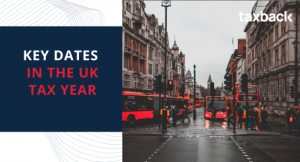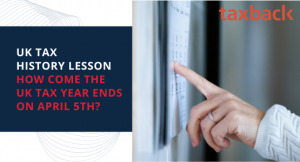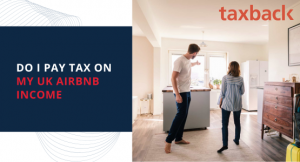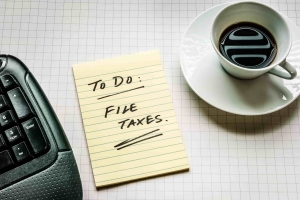Maximizing Tax Efficiency: Self-Employed Expense Deductions in the UK
If you’re self-employed in the UK you are no doubt aware of the many different expenses incurred while running your own business.
But the good news is that you may be entitled to deduct many of these business expenses to reduce your overall tax liability.
You will need to file a self-assessed tax return to claim these expenses.
We’ve put together this handy guide explaining the tax reliefs you may be able to claim if you’re self-employed.
How much tax will I pay on the income I earn from self-employment?
The first thing to note is that you can earn up to £12,570 before you have to pay tax.
Any income earned up to £50,270 will be taxed at 20%, and income earned from £50,271 to £125,140 will be taxed at 40%.
Finally, income above £125,140 will be taxed at 45%.
These are the same tax bands that workers in direct employment also pay.
You can also claim self-employed tax deductions to reduce your tax liability.

What can I claim tax relief on?
You can deduct the cost of certain self-employed expenses in order to reduce your tax bill.
The self-employed expense deducted must be considered an allowable expense.
The average UK tax rebate is £963
Self-employed allowable expenses list for the UK include:
Office expenses
These are office items that you would usually use for 2 years or less such as stationery, rent, rates, electricity and insurance expenses.
Stationery includes mobile, internet, stationary, printing, ink, computer software used for less than 2 years and computer software the business uses and pays licenses to renew even if used for more than 2 years, related to expenses and deductions for self-employed in the UK.
You may be able to claim other software and computers for your business as capital allowances. If your computer is used solely by your business, you can claim back the cost of it on your tax return as a self-employed expense. If you use your computer for both personal and work-related activities, you can claim back around half the cost.
If you work from business premises, you can also claim back the cost of your bills like rent, heat, rates, light, insurance and repairs. If you work from home you can claim back the ‘business part’ of these self-employed expenses.
Travel costs
If you travel for your business there are a number of costs you can claim. These self-employed expenses include:
-
vehicle insurance
-
repairs and servicing
-
fuel
-
parking
-
hire charges
-
vehicle licence fees
-
breakdown cover
-
train, bus, air and taxi fares
-
hotel rooms
-
meals on overnight business trips
If you use your vehicle to travel for business, you can claim back the expenses you incur by using it. There are two ways to calculate the expense:
-
By working out the actual expenses by keeping detailed records of the mileage accumulated through business and personal travel
-
By using a fixed rate for each mile travelled for work purposes
You may also be able to claim mileage expenses if you travel as part of your business.
Non-business driving or travel costs, fines incurred or travel between home and work cannot be claimed as an expense.
The expense of buying a vehicle for your business use may be claimed as a capital allowance.
Clothing expenses
You can’t claim for everyday clothing even if these are the clothes you wear to work.
However, you can claim expenses for uniforms, protective clothing needed for your work and costumes for actors or entertainers.
Staff costs
Allowable self-employed expenses that can be claimed include:
- Employee and staff salaries
- Bonuses
- Pensions
- Benefits
- Agency fees
- Subcontractors
- Employer’s National Insurance
- Training courses
The average UK tax rebate is £963
Carer and domestic help (nannies) expenses can’t be claimed.

Reselling goods
Stock, raw materials and direct costs from producing goods can all be claimed as allowable self-employed expenses.
Legal and financial costs
You can claim expenses for an accountant, solicitor, surveyor, architect, or any other professional costs you paid for. Legal costs of buying property and machinery cannot be claimed, but if traditional accounting is used in your business you can claim for these costs as capital allowances.
Bank, credit card, other financial charges and insurance policies, can be claimed as business costs.
If you use cash basis accounting in your business, you are only able to claim up to £500 in interest, and bank charges on your Self Assessment expense return.
Unpaid Invoices
This is probably the most unused self-employed expense businesses can avail of. If you use traditional accounting for your business you can claim expenses for money included in your turnover that you will never receive. This is known as a bad debt.
You must be sure that you will never receive this money from the customer. You are not allowed to claim for debts which are not included in your turnover, debts that are related to the disposal of fixed assets, like land, buildings or machinery and bad debts that are not calculated properly.
If you use cash-based accounting you can’t claim bad debts. This is because you’ve not received the money from your debtors and only record the income you have actually received.
Costs of your business premises
Repairs and maintenance for premises and equipment can be claimed as an expense. Buying a building can’t be claimed as an expense. You may also claim capital allowances for integral parts of a building like the water heating systems.
Advertising or marketing
You can claim allowable self-employed expenses for:
- Advertising in newspapers or directories
- Bulk mail advertising
- Free samples
- Website costs
The average UK tax rebate is £963
You cannot claim expenses for the cost associated with entertaining clients, suppliers and customers and event hospitality.
Subscriptions for trade or professional journals and trade body or professional organisation membership can also be claimed as a business expense.
Training costs
If you take part in training that helps you improve the skills and knowledge you use in your business, you can claim this as an expense. You can’t claim expenses for costs from courses attended to help you start a new business, or expand into new areas of business, including anything related to your current business.
What are flat-rate simplified expenses?
This is a way of calculating your self-employed business expenses by using flat rates instead of calculating the actual business costs. You can choose whether or not you want to use this method.
You can use this method to calculate costs from working from home, business costs for vehicles, and living on your business premises. You need to record the information related to the expense you are claiming for example, record the amount of hours worked at home, and then at the end of the tax year you use the flat rates to work out the expense.
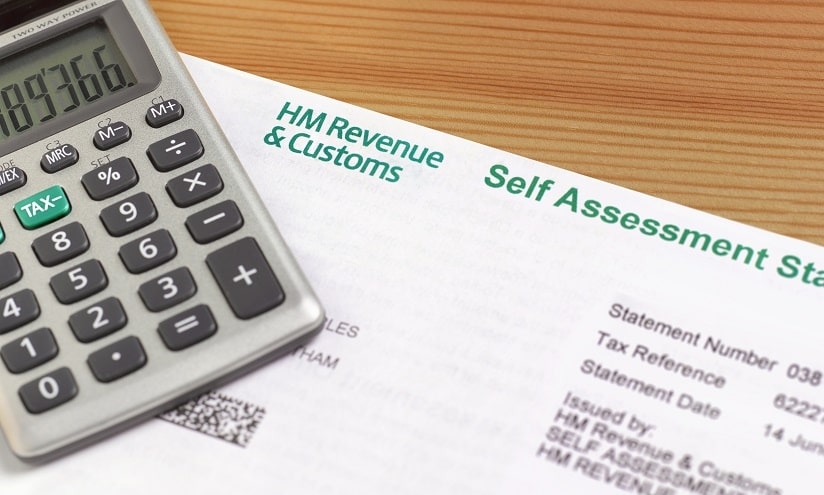
What can I claim if I work from home?
If you work from home you can claim a range of expenses such as:
- Heating
- Electricity
- Council Tax
- Mortgage interest or rent
- Internet and telephone use
You must be able to work out how much of your total bills you use for working from home. For example, you have 4 rooms in your home, one of which you use only as an office. Your electricity bill for the year is £400. Assuming all the rooms in your home use equal amounts of electricity, you can claim £100 as a self-employed allowable expense (£400 divided by 4).
If you worked only one day a week from home, you could claim £14.29 as allowable expenses (£100 divided by 7).
What records do I need to keep if I am Self-Employed?
If you are self-employed for anything to do with your business such as:
- cashbooks
- invoices
- mileage records
- bank statements
- receipts for purchases
- CIS vouchers
You can keep these records either on paper or on the computer. For electronic records, you must capture all the information (front and back), save the information in a readable format, and keep a backup.
You should keep these for a minimum of 6 years.
When do I need to file my UK tax return?
The UK tax year ends on 5 April. The deadline for filing a paper tax return is 31 October 2024. Online tax returns for 2023/24 must be filed before 31 January 2025.
You must pay any tax due to HMRC by 31 January 2025.
From the second year of your self-assessment, you may make payments on account. This is an estimate of what your tax bill will be at the end of the year based on your previous year's tax return.
There are usually two payments, 31 January, and 31 July.
The average UK tax rebate is £963
So, if you're wondering how to do a tax return in the UK, we've got you covered.
Check out our Self-employed tax calculator to see how much you can claim.
You can prepare your self-assessed tax return and claim your expenses yourself online.
You can use our free tax return estimator to calculate your UK tax rebate.
However, if you need help filing your self-assessment tax return and want to leave the boring tax paperwork to someone else, you can contact Taxback.
If you have any questions, you can use our 24/7 live chat.
